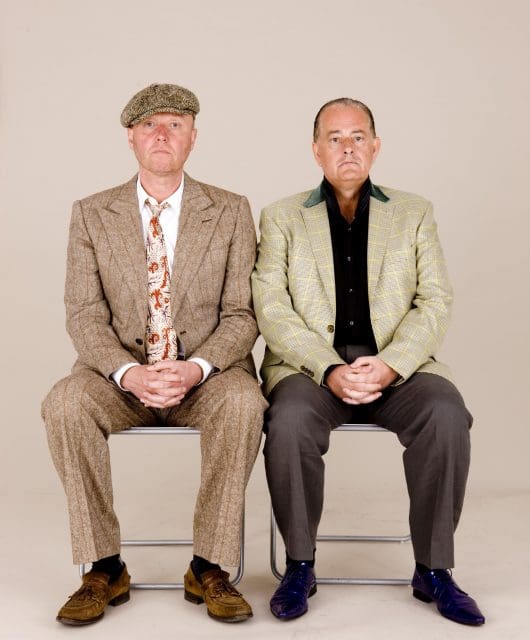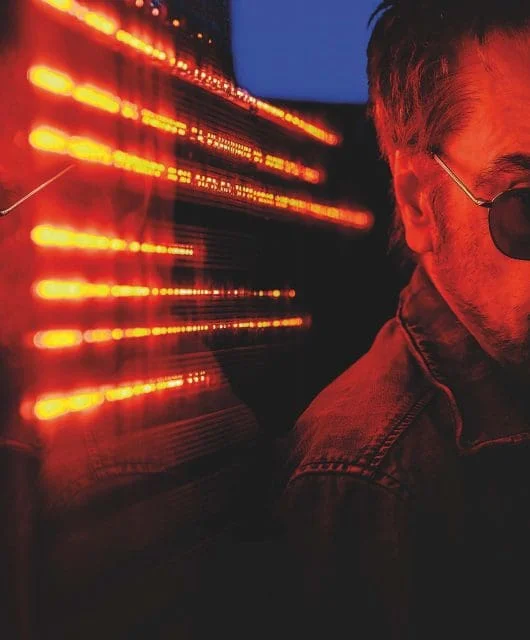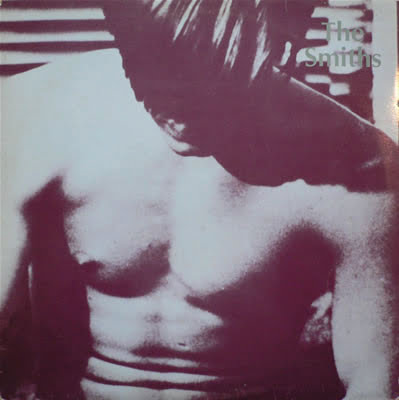ABBA Albums: The complete guide
By Steve Harnell | April 22, 2021
All of the ABBA albums are worth a place in every pop fan’s record collection. Here we take a trip through every record the quartet ever made…
ABBA Albums: Ring Ring

Released 1973
Label Polar/Polydor
Chart positions: SWE: No.2 AUS: No.10
When you consider just how dominant ABBA were as a force on the singles chart in particular during the 70s and early 80s, you’d be forgiven for thinking they had the formula for pop perfection all along.
There’s plenty of hit-making potential bubbling under the surface of the quartet’s 1973 debut but it has yet to be fully refined. Benny Andersson and Björn Ulvaeus had already carved out a career as successful songwriters in Sweden before inviting their respective partners to record a one-off single.
In fact, they had plenty of other irons in the fire, ABBA was just one of several projects each individual member were involved in at this stage.
The resultant 7″, People Need Love, included here on their debut, is a winsome slice of pop bounce with a decent thumping piano part from Benny and what would eventually become a trademark of theirs – a key change at the midway point to up the ante. Agnetha and Frida even sneak in some yodelling backing vocals as a nod to their Nordic homeland.
The eventual album’s opener, the bouncy glam rock title track was ABBA’s pitch for 1973’s Eurovision contest. With additional lyrical help from Neil Sedaka and writing partner Phil Cody, it’s the clearest hint here of their knack for earworm choruses. There’s a lilting charm to the elegant Another Town, Another Train, the vocal blend of the group coalesces nicely.
Agnetha gets her only ABBA co-write credit on the ballad Disillusion, a fine performance but it doesn’t quite tug at the heartstrings to the same extent as their best work. Benny and Björn duet on the introspective I Saw It In The Mirror – its plodding tempo sees them fail to get out of first gear, though.
ABBA’s melodic sensibilities are placed to the fore more obviously on the perky character study Nina, Pretty Ballerina. Like the title track, it’s the clearest indication on this debut of what the group would go on to achieve – a supremely hooky chorus and an irresistible melody in the verses.
The country rock textures of Love Isn’t Easy (But It Sure Is Hard Enough) are something ABBA could have explored further – the kettle drum drop-ins raise a smile and hint at a playfulness in their arrangements.
There’s impressive lead guitar soloing on He Is Your Brother and a kitschy 60s Carnaby Street charm to the swoonsome I Am Just A Girl. Whether they quite live up to the titular billing on Rock’N’Roll Band, though, is a moot point.
Ring Ring was a competent opening statement of intent and rose to a respectable No.2 in ABBA’s homeland, even making a surprise appearance in Australia’s Top 10.
Read more: Making ABBA’s Ring Ring
ABBA Albums: Waterloo
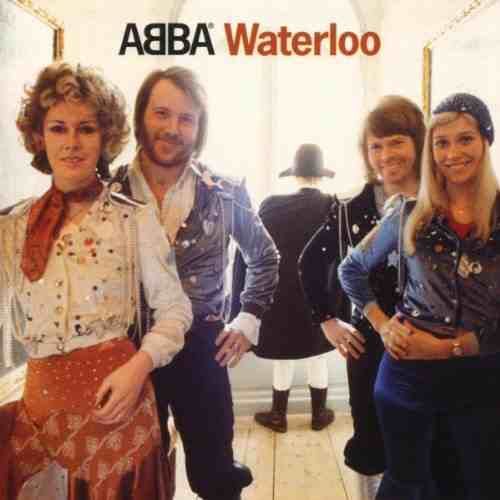
Released 1974
Label Epic
Chart positions UK: No.28 US: No.145
Led by its careering title track that won Eurovision in 1974 and announced ABBA on the world stage, the group’s second album is a diverse collection of genres and, in some cases, a handful of pretty dubious lyrical clunkers. You can’t deny the strident glam rock throb of the lead track, though, with honking saxes and Benny’s descending piano chord crashes.
However, there’s a worrying stalkerish air to both the cod reggae of Sitting In The Palmtree and threatening vibe of Watch Out. Meanwhile, King Kong Song can’t rise above its shocking lyrics (“King Kong song/ Gotta sing along, Can’t you hear the beating of the monkey tom-tom?”).
Waterloo’s secret weapon could be the underrated brilliance of My Mama Said, which boasts a supremely funky disco bassline from Rutger Gunnarsson and choppy Chic-like guitars.
The group rejected Hasta Mañana for Eurovision in favour of Waterloo with good reason, although its simple singalong qualities certainly wouldn’t have been out of place in the competition.
Benny and Björn’s vocal shortcomings are rather exposed on Dance (While The Music Still Goes On) but ode to space travel, What About Livingstone?, has a charming innocence and the chiming baroque pop of Suzy-Hang-Around hints at the classical foundations behind many of the quartet’s finest songs.
Notching up chart entries around the world, ABBA were now on the rise…
Read more: Making ABBA’s Waterloo
ABBA Albums: ABBA
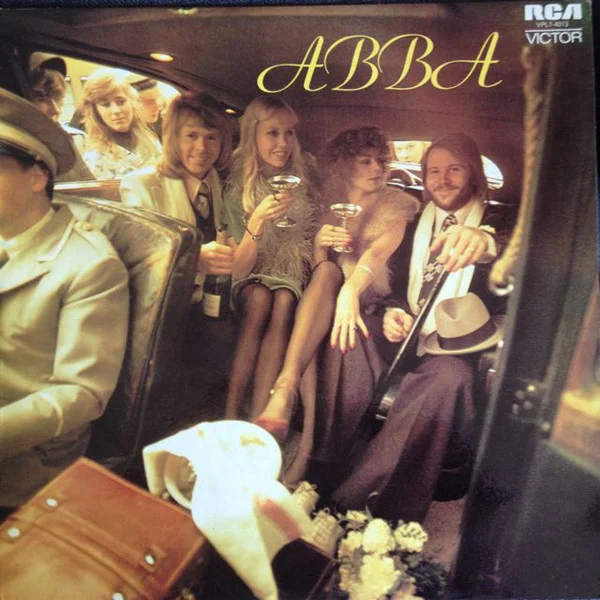
Released 1975
Label Epic
Chart positions UK: No.13 US: No.174
We can we mark this third eponymous album out as the point at which ABBA begin their rise to chart ubiquity. The group’s label saw this as an opportunity to flood the marketplace; an astonishing seven cuts from the LP were released as singles, doing brisk business across most of Europe and on a couple of occasions making waves in the United States, which had hitherto remained pretty much impervious to their charms.
As with its predecessor, the LP kicks off with a barnstorming opener. Mamma Mia, all double-tracked guitars and distinctive marimba melody, is a classic ABBA tale of troubled love. The last song recorded for ABBA, bizarrely it wasn’t originally considered as worthy of being released as a single.
Its lyrics, though, once again feature a weak female protagonist in an unhealthy relationship, which rather does yet another disservice to Agnetha and Frida (“When you go/ When you slam the door/ I think you know that you won’t be away too long/ You know that I’m not that strong”).
The quiet/loud dynamic and blockbuster spiralling melody of SOS masks another similarly weak female (“When you’re gone/ How can I even try to go on?”). The album’s lyrics border on patronising to women at times. I Do, I Do, I Do, I Do, I Do details another failing relationship, although there seems a glimmer of hope at least that the factions can be reconciled.
The blaxploitation flick vibe of Man In The Middle details the grim relationship-of-convenience of a wealthy conscience-free 50-year-old man and a 17-year-old gold- digger (“If he’s 95, she doesn’t give a damn/ Just as long as he pays the bill”). Take into account the singularly finger-wagging tone of anti-feminist glam rocker Hey, Hey Helen and it all reflects rather badly on ABBA’s male contingent.
A dip into Elton John-esque piano- and guitar-driven glam rock for So Long at least sees the long overdue depiction of an independent woman (“They say that money’s got the magic touch/ But not to me, it doesn’t mean much”). Lyrics aside, there are musical missteps on Bang-A-Boomerang and a return to cod reggae with the stilted session musician feel of Tropical Loveland and forgettable I’ve Been Waiting For You.
The overblown proggy instrumental Intermezzo No.1 is rather fun, though, hinting at classical ambitions. It’s the sound of ABBA in a Rick Wakeman cape.
ABBA Albums: Arrival
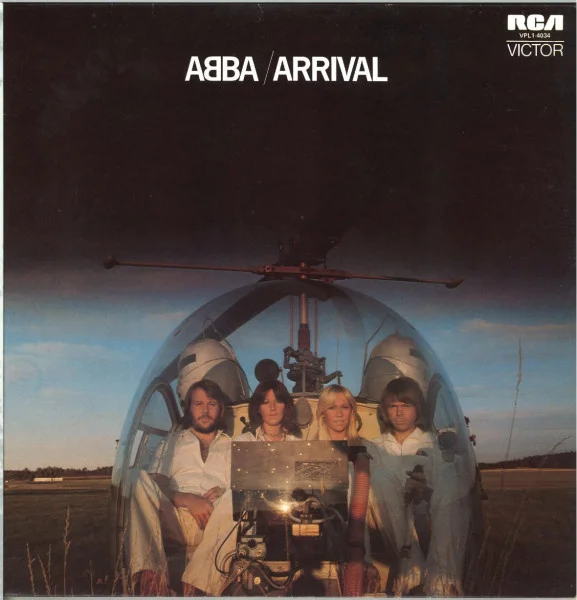
Released 1976
Label Epic
Chart positions UK: No.1 US: No.20
Fronted by iconic cover art that implied that ABBA had just choppered in and were ready to take over the world, Arrival was the quartet’s most consistent and confident long-player to date. In fact, many would argue it remains their most concise pop masterpiece. The first appearance of their now famous logo was further proof of a global brand being established.
Almost a year in the making, Arrival was a mature statement that transcended ABBA’s Eurovision and schlager roots to move into cultured AOR with nods to folk, Philadelphia Soul and even Fats Domino-referencing 50s-style retro rock’n’roll.
When sessions got underway in August 1975, ABBA already had a groove under the working title of Boogaloo in the bag. Inspired by George McCrae’s Rock Your Baby, it would eventually morph into Dancing Queen and see the group fully embrace the burgeoning disco sound. A perfect fit.
A worldwide No.1, Dancing Queen’s success was further embellished by the Cabaret-inspired Money, Money, Money and emotive break-up ballad Knowing Me, Knowing You.
Those three powerhouse singles grabbed the headlines on Arrival but there’s plenty of strong material elsewhere.
Influenced by the multi-track backing vocals of 10cc’s I’m Not In Love, My Love, My Life marks ABBA’s dip into material that could be from musical theatreland – the West End and Broadway via Stockholm – and finds Agnetha on heart-wrenching form. Fältskog’s personal favourite from the album was another disco floorfiller, the upbeat That’s Me.
For an album that was so carefully put together, it’s a surprise that there was a last-minute need to work up the hastily-written filler Dum Dum Diddle, a 5am rush job on the final day of recording, it’s slight but unassuming Europop that’s not quite as throwaway as its title would suggest.
Likewise, the closing title track instrumental – surprisingly and rather winsomely covered by Mike Oldfield – seems rather surplus to requirements here.
ABBA’s rise was unstoppable by this point. A critical and commercial smash, Arrival hit No.1 in 12 countries and became the biggest-selling LP of 1977.
It’s a perfect snapshot of a group brimming with optimism and alive to the diverse opportunities of sophisticated pop.
Read more: Making ABBA’s Arrival
ABBA: The Album
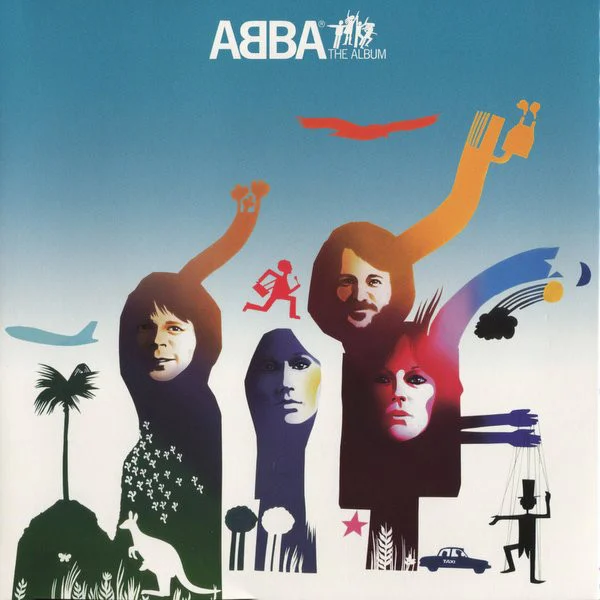
Released 1977
Label Epic
Chart positions UK: No.1 US: No.14
Welcome to ABBA: The multi-media years – this fifth studio album was released as a companion piece to ABBA: The Movie, the feature-length drama-documentary that centred on the group’s 1977 Australian tour.
To put the quartet’s pulling power into perspective during their pomp years, ABBA sold an unheard of one million copies of this album in Poland, using up all of the country’s foreign currency resource in the process. In Russia, only a limited pressing of 200,000 copies was allowed of this most revolution-kickstarting music – a drop in the ocean to estimated demand.
Experts predicted ABBA could have sold an eye-watering 40 million in a free market. In the UK, this sailed straight to the No.1 slot although pressing plants in the country couldn’t cope and missed their Christmas deadline.
When record buyers eventually got their hands on a copy of ABBA: The Album they discovered the group’s most confident and expansive studio effort to date. ABBA had always deployed a grab bag of styles on their LPs but pushed the sonic boundaries even further here, effortlessly straddling proggy textures, hard-hitting tunes and dancefloor-friendly material.
The studio sophistication was most obvious on lush opener Eagle, which boasts brushed acoustic guitars and proggy synths. There’s a singalong chorus, of course, but this is light years away from their earlier, more naive work.
The intricate multi-layered a cappella intro to Take A Chance On Me still dazzles, with its stop-start rhythm courtesy of drummer Roger Palm a callback to Dancing Queen.
By now, ABBA’s knack for lighter-waving choruses had reached its zenith, from the underrated torch song of One Man, One Woman which features some rather lovely backing vocals and anthemic Thank You For The Music.
Palm’s off-beat drumming style adds swing to the slinky The Name Of The Game, which even finds time for a piccolo trumpet solo. The track is one of three co-writing credits for manager Stig Anderson, and doesn’t try too hard to impress.
Typical of the ambition of the album is Björn’s spoken word intro to Move On (“They say a restless body can hide a peaceful soul/ A voyager, and a settler, they both have a distant goal”).
There’s a little good-time rock’n’roll fun on Hole In Your Soul, a great band performance with all four members facing each other off in real time in the studio – one of only a handful of occasions where ABBA tried such an old-school approach and Agnetha’s primal scream suggests she could rock out with the best of them when the spirit took her.
ABBA: The Album is also notable for its finale that includes the aforementioned Thank You For The Music, the opener to The Girl With The Golden Hair: Three Scenes From A Mini-Musical. Also encompassing I Wonder (Departure) and I’m A Marionette, it’s an unsettling examination of the dangers of success.
In a final twist, the central character denounces her celebrity status to declare it has left her little more than a puppet. Is this the first indication of ABBA’s emerging disillusionment with fame?
Read more: Making ABBA: The Album
Read our feature on ABBA: The Movie here
ABBA Albums: Voulez-Vous
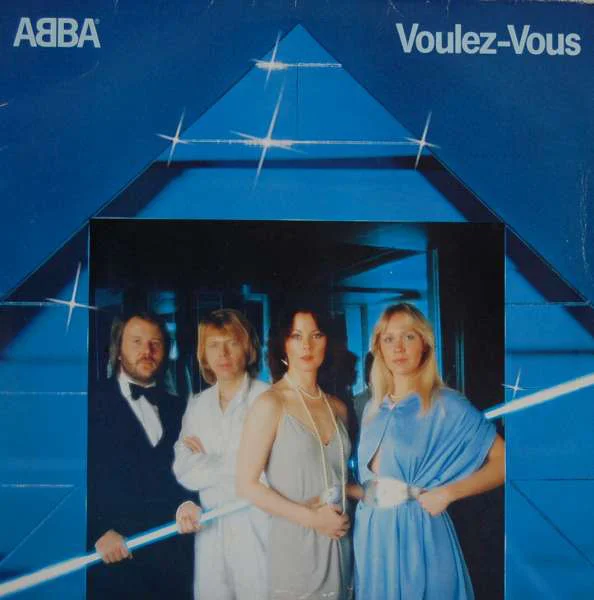
Released 1979
Label Epic
Chart positions UK: No.1 US: No.19
Hitching a ride on the disco bandwagon was hardly a novel idea in the late-70s – everyone tried it, from Rod Stewart and The Rolling Stones through to James Brown.
Few made the transition as seamlessly, though, as ABBA on an album where, to some extent, Benny and Björn felt their backs were against the wall. Voulez-Vous is packed with dancefloor-friendly bangers.
By their own standards, Summer Night City, released as a one-off single in the autumn of 1978, was something of a commercial disappointment even if there was nothing wrong with the quality of the song itself.
Early album recording sessions were troubled. Unreleased track Dr Claus Von Hamlet felt like a creative dead end and further material was demoed yet ultimately jettisoned.
Just two songs from those opening sessions – The King Has Lost His Crown and Lovers (Live A Little Longer) would go on to make the cut on the long-player.
Feeling stifled by the usual routine of working in their secluded hut on the island of Viggsö in Stockholm’s archipelago, Benny and Björn instead jetted off to Miami and the Bahamas for a writing expedition with the express intention of pulling together enough material for a new LP.
Immersing themselves in the disco and funk of Donna Summer, the ubiquitous Bee Gees and the mighty Earth, Wind & Fire, the direction of their sixth studio album was something of a foregone conclusion if ABBA were to remain big-hitting chart stars; Voulez-Vous is predominantly built for the dancefloor.
Kicking off with the hyperactive scratchy funk of As Good As New, complete with stabbing Philly strings and handclaps, the album barely pauses for breath.
The title song pulsates with double-tracked guitars, horn stabs and urgent vocals from Agnetha and Frida.
The underrated Angeleyes, a tale of betrayal and a cheating lover, is fired up by its bitter subject matter, while Does Your Mother Know – Björn’s only lead vocal on a single – tips its hat to classic Elton John pop rockers.
The mid-tempo disco of If It Wasn’t For The Nights returns to the easygoing groove of Dancing Queen, although its chorus doesn’t quite scale those giddy heights.
The spiralling intro melody to Lovers (Live A Little Longer) impresses as do the Philly Soul-style sweeping strings and its wriggling bassline. Meanwhile, Kisses Of Fire begins in ballad mode before bursting into life, as pulsing electro drives the insistent backbeat.
That’s not to say, though, that Voulez-Vous is wholly disco-oriented. The delicate schlager-influenced I Have A Dream, featuring a local children’s choir, takes the pace down a notch and the acoustic ballad Chiquitita recalls the occasions on previous albums where the group dipped into musical theatre for inspiration.
The album cover, shot at Alexandra’s nightclub in Stockholm, is its abiding image. This is ABBA at their most upbeat and heading with wild abandon to the dancefloor. Further introspective break-up ballads were still to come. For now at least, it was time to party.
Read more: Making ABBA’s Voulez-Vous
ABBA Albums: Super Trouper
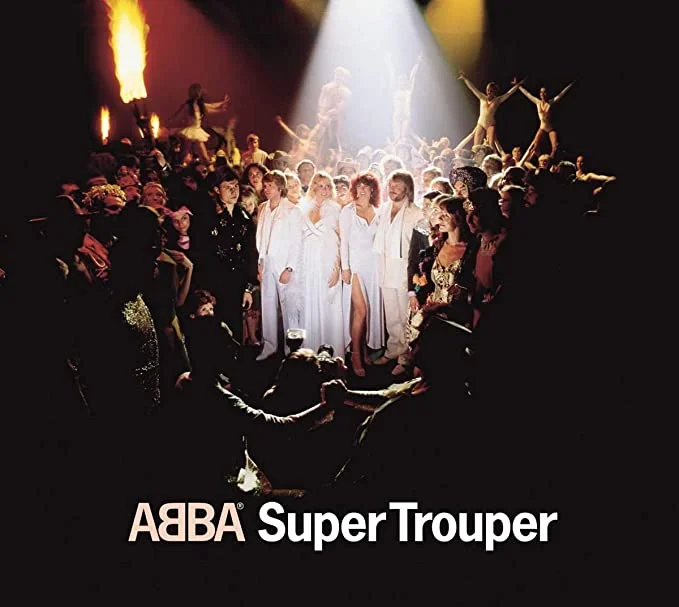
Released 1980
Label Epic
Chart positions UK: No.1 US: No.17
How fitting that the Super Trouper referenced in ABBA’s seventh album was a powerfully intense spotlight.
As the quartet’s relationships splintered, all eyes were on the group as fans picked over the lyrics to find references to their inner turmoil. And there would be many of them. Super Trouper contains plenty of heart-on-the-sleeve balladry to keep their more prurient fans entranced.
Agnetha and Björn announced their split in 1979 – the fact that he met his new partner within a week hardly helped inter-band matters with his ex-wife. Benny and Frida’s short-lived marriage had also broken down. We were now some distance from the naive joys of their Eurovision win.
As with Voulez-Vous, initial writing sessions were a struggle until Benny and Björn jetted off to Barbados to gain a fresh perspective. The 10-day jaunt again proved successful as they penned the contemplative Happy New Year and Beach Boys-inspired On And On And On.
With some momentum under their belts, the pair split their time between writing sessions in Viggsö and recording at Polar Studios, breaking only for a tour of Japan in March 1980.
The multi-layered a cappella title track intro recalls Take A Chance On Me and gets us under way in optimistic mode, although it wasn’t to last.
Key to the record is arguably their most accomplished torch song, The Winner Takes It All, a heart-wrenching break-up ballad with dramatic piano from Benny. Although Björn insists it’s not strictly autobiographical about his split with Agnetha, its pertinence to the couple’s predicament is obvious.
Likewise, there’s a fin de siècle feel to the reflective Happy New Year, originally planned as the jumping off point for a musical. Completing the break-up triptych is Our Last Summer. Elsewhere, Andante, Andante is a return to their schlager roots and The Piper is sleek 80s sophistipop.
Lay All Your Love On Me, a blockbuster disco anthem and at one point reportedly the biggest-selling 12″ of all time, leaves us on a high; its upbeat arrangement masks a dark heart (“I wasn’t jealous before we met/ Now every woman I see is a potential threat”).
Read more: Making ABBA’s Super Trouper
ABBA Albums: The Visitors
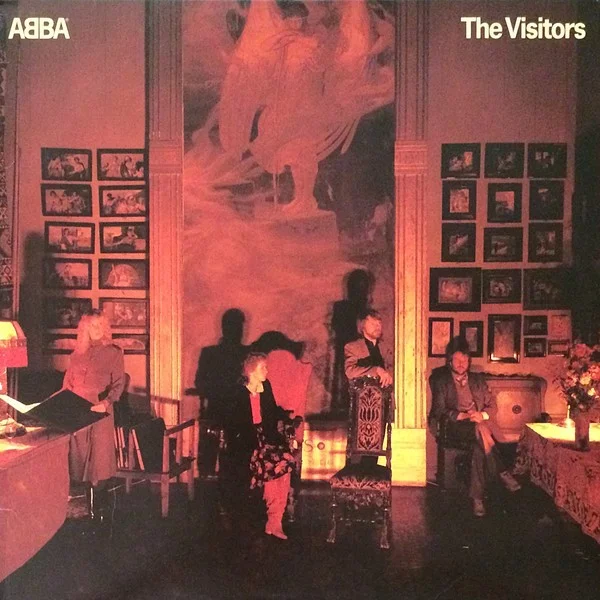
Released 1981
Label Epic
Chart positions UK: No.1 US: No.29
More experimental and moody than anything ABBA had previously attempted, The Visitors was the group’s (unannounced at least) goodbye to fans – an outlier in their back catalogue with multiple hidden depths.
The frosty synth-pop title track opener has more in common with Gary Numan than Eurovision, Frida’s deliberately off-key lead vocal works brilliantly as an unsettling piece of art-pop.
The breakdown of the quartet’s two romantic relationships had by now impacted on their work; Björn admitted sessions were often frosty and difficult. The end was nigh and the spirit of collaboration was at its most strained here, this is more akin to the way The Beatles recorded ‘The White Album’ in separate factions.
Even their stomping ground of Polar Studios was in transition as engineer Michael Tretow battled with new 32-track digital technology.
You sense Frida is gaining closure on her broken marriage by pouring her heart into When All Is Said And Done, although its lyrics were written by Björn rather than her ex-husband.
The subdued Soldiers, while featuring a few trademark ABBA chordal vamps, could almost be Berlin-era Bowie. Meanwhile, Slipping Through My Fingers is a poignant meditation on parenthood – Björn penned the lyrics after watching his seven-year-old daughter Linda leave for school one day. The song has since gone on to become a mainstay in the Mamma Mia! musical.
A ticking clock ushers in the mournful Like An Angel Passing Through My Room, with Frida’s bare vocal set within a crystalline synth arrangement. Its relevance to the foursome’s predicament was all too clear (“Like the embers as they die/ Love was one prolonged goodbye”).
Rather than a communal group shot, there’s a sense of distance in the bleak photo of the band for The Visitors’ front cover. Save for the long-awaited new material set for release in 2021, this was the end for ABBA.
Read more: Making ABBA’s The Visitors
ABBA Albums: Voyage

Released 2021
Label Universal
Chart positions UK: No.1 US: No.2
Do they have it in them…? Well, that was the main concern when ABBA announced they’d reconvened and were back in the studio recording songs that eventually became an entire album – their first all-new set for 40 years. What would it entail? What should we expect?
Led by the singles I Still Have Faith In You and Don’t Shut Me Down – both sides of the ABBA coin if you will; one a majestic elegant show-stopper, the other a bit of a slinky minx – Voyage seemed to capture every element of the group’s canon. There are nods to their past throughout – a motif from S.O.S. at the end of Keep An Eye On Dan and the panpipes of Fernando on Bumblebee. One could easily play ‘spot the reference’ throughout.
The cheery Irish jig of When You Danced With Me puts its case across with mentions of Kilkenny and use of uilleann pipes, and can be filed alongside Ed Sheeran’s Galway Girl as one of those songs that knows it has an audience.
Keen-eared fans will know of Just A Notion which appeared as an earlier version as part of the ABBA Undeleted medley off the Thank You For The Music box set in the mid-90s, but here keeps the original vocal but rejigs the music.
Little Things, is basically the idealised Christmas encapsulated in three-and-a-half minutes. It’s tingly, twinkly, a little twee and delightful in a way that evokes a Werther’s Original advert, and ready to replace Happy New Year on various Christmas compilations. There’s a children’s choir as well as mentions of Santa and stockings. It’s just the right side of syrupy, which is handy as you’re likely to hear it every December from now on.
No Doubt About It, I Can Be That Woman and Keep An Eye On Dan all seem to centre around the nuances of relationship strife that ABBA have made a masterclass of. The opening line of I Can Be That Woman, “You’re asleep on the couch with Tammy” sounds like it might be a little ominous, until you realise Tammy’s a dog when “she jumps down and her tail is swishing”, although there’s nothing merry about it from there on in, documenting the minor grievances between an older couple who may or may not be taking chunks out of each other.
You could imagine Dolly Parton doing it and turning it into a big old blubfest; Keep An Eye On Dan burbles away electronically under a stressful tale of shared parenting, pertaining to an unresolvable dispute.
The rocking No Doubt About It, which sounds like a live show opener of yore, again casts the female as the one in the wrong, but a line like “He says with forbearance in his eyes: Most couples we know are able to compromise” is Peak Ulvaeus/Andersson, a combination of language far and away from pop’s usual lingua franca, and the telling(?) “This isn’t where it ends” would be a dreadful tease had they not gone on record to say that this is the last of ABBA.
The last track, Ode To Freedom, has a significant nod to Tchaikovsky’s Swan Lake waltz, but different enough so that he wouldn’t be able to sue (not that he’s likely to, having been dead nearly 130 years).
Over a glacial, closing credits-esque glide, there is the cautious optimism for the future – “I wish someone would write an Ode To Freedom that we all could sing” – hoping for a time where we could all one day chorus in agreement. It’s a suitable end of the Voyage, the moment where ABBA depart the stage and the album.
Benny and Bjorn have mentioned in interviews that they recorded this album “trend blind” – ignoring any musical development in the past four decades. There are no attempts to sound current, and no incongruous guest spots from BTS, Doja Cat or any other flavour-of-the-month doing numbers on social media.
Fact is, ABBA have always been in their own lane, impervious to any major desperate leap to sound current, bar the occasional nod to disco, perhaps, but ultimately by being their own thing. It is to their credit that their strengths lay in being oblivious to outside forces – it was up to the rest of the world to catch up with them. And they did.
Ian Wade
Check out ABBA’s official website here
Read more: Top 20 Reunion Albums
Read more: Debbie Harry interview


